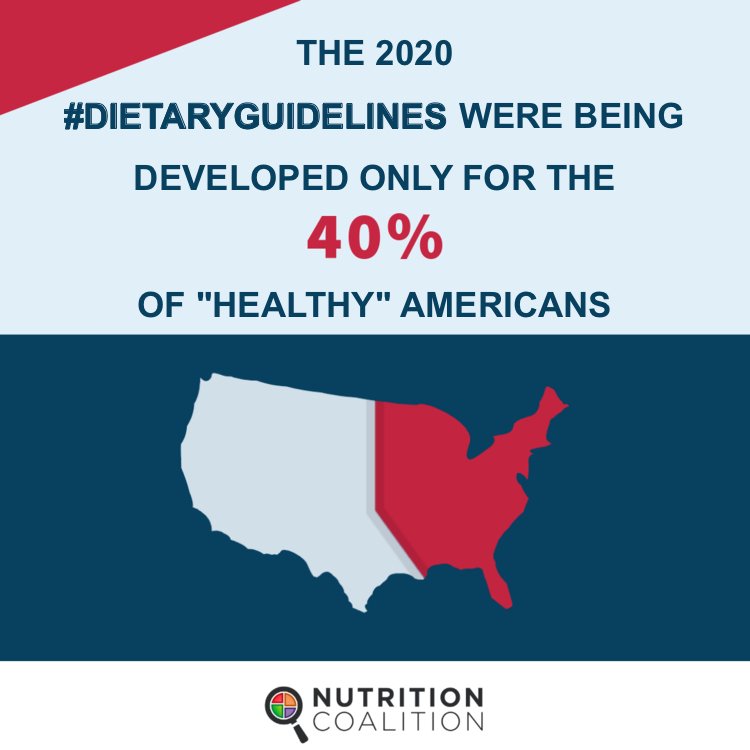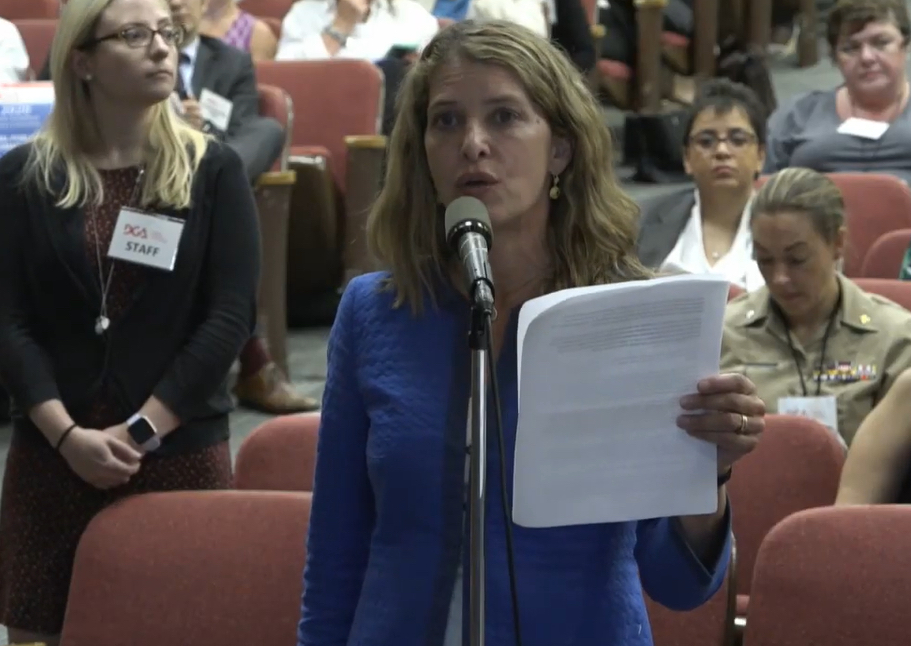Academies of Sciences: Guidelines Need Reform
Redesigning the Process for Establishing the Dietary Guidelines for Americans
In September, 2017, the National Academies of Sciences, Engineering and Medicine (NASEM) issued a report on the process used to develop the Dietary Guidelines for Americans (DGA). This report had been mandated and funded by Congress, following concern that the DGA have failed to combat obesity and type 2 diabetes, as well as other major nutrition-related diseases.
A crucial finding of the report is that the current DGA process for reviewing the science falls short of meeting the "best practices for conducting systematic reviews," and that "methodological approaches and scientific rigor for evaluating the scientific evidence" need to "be strengthened." The report states, "To develop a trustworthy DGA, the process needs to be redesigned." [1]
Highlights Raising Questions of Concern:
Quoted from: National Academies of Sciences, Engineering, and Medicine. 2017. Redesigning the process for establishing the Dietary Guidelines for Americans. Washington, DC: The National Academies Press.
Scientific Rigor: Reform of the Guidelines process can “improve transparency, promote diversity of expertise and experience, support a deliberative process, promote independence in decision making, and strengthen scientific rigor. If successfully implemented, these modifications collectively have the potential to help improve the credibility of the DGA and trustworthiness of the process.” (Report, part 2, p. 8)
“…scientific rigor needs to be maximized. The process by which the science is evaluated can be strengthened by (1) using validated, standardized processes and methods; and (2) using the most up-to-date data. Processes and actions ought to be based on the best available evidence, requiring the types of analysis used be continuously improved and advanced.” (Ibid, p. 8)
“To develop a trustworthy DGA, the process needs to be redesigned.” (Ibid, p. 51)
“This National Academies committee assessed the NEL systematic review process, identifying several opportunities to advance and align…with existing best practices for systematic reviews.” (Ibid, p. 185)
Several recommendations “made by this National Academies committee (see Recommendations 5, 6, and 7) are for strengthening and adopting appropriate and strategic methodologies so as always to align with current best practices.” (Ibid., xi)
”The methodological approaches to evaluating the scientific evidence require increased rigor to better meet current standards of practice….there are many ways in which the analyses need to be strengthened.” (Ibid., p. 5)
“…scientific rigor needs to be maximized. The process by which the science is evaluated can be strengthened by (1) using validated, standardized processes and methods; and (2) using the most up-to-date data.” (Ibid, p. 7)
“Current methods need to be strengthened to better support the development of credible and trustworthy DGA [Dietary Guidelines]” (Ibid, p. 96)
Chronic disease prevalence: “...it is not currently positioned to effectively adapt to changes such as food diversity and chronic disease prevalence, while also ensuring the integrity of the process…”
In a section entitled, “Broadening the Scope of the DGA [the Dietary Guidelines],” the NASEM states, “Given the prevalence of chronic disease and risk for chronic disease in the population, this National Academies committee believes it will also be essential for the DGA Policy Report to include all Americans whose health can benefit by improving their diet based on the scientific evidence. Without these changes, present and future dietary guidance will not be applicable to a large majority of the general population.” (Ibid, p. 50)
Bias: “The adoption and widespread translation of the DGA requires that they be universally viewed as valid, evidence-based, and free of bias and conflicts of interest to the extent possible. This has not routinely been the case.”
“…the overall protocol needs to be strengthened to improve the efficiency of the NEL [scientific review] process and minimize the introduction of bias.” (Ibid, pp. 164-65)
Enhancing Transparency: “...is vital to engendering public trust in the process, as well as providing assurance that decisions were made free of undue influences.”
“The process to update the DGA should be redesigned to increase transparency and allow for the appropriate expertise…”
Strengthen the Evidence Base: “Methodological approaches and scientific rigor for evaluating the evidence should be strengthened by using validated, standardized processes and methods with the most up-to-date data. It is critical that, for example, the Nutrition Evidence Library is aligned with best practices for conducting systematic reviews and uses appropriate methods.”
Advanced Methods Used: “Processes and actions should be based on the best available evidence, requiring that the analyses used be continuously improved and advanced.”
General comments: Collectively, these findings and conclusions compromise the integrity of the DGA and limit its ability to develop a full body of evidence on a continuous basis over time.
“…the effect of the DGA will be limited if they do not apply to the general population and if the public questions the credibility of the process and the ultimate DGA recommendations. To develop a trustworthy DGA, the process needs to be redesigned.”
“It will be imperative for the process to enhance transparency, manage biases and conflicts of interest to promote independent decision making, promote diversity of expertise and experience, support a deliberative process, and adopt state-of-the-art processes and methods to maximize scientific rigor.”
[1] The National Academies of Sciences, Engineering and Medicine, “Redesigning the Process for Establishing the Dietary Guidelines for Americans,” September, 2017, http://nationalacademies.org/hmd/Reports/2017/redesigning-the-process-for-establishing-the-dietary-guidelines-for-americans.aspxpp. S-4 and 2-15.










